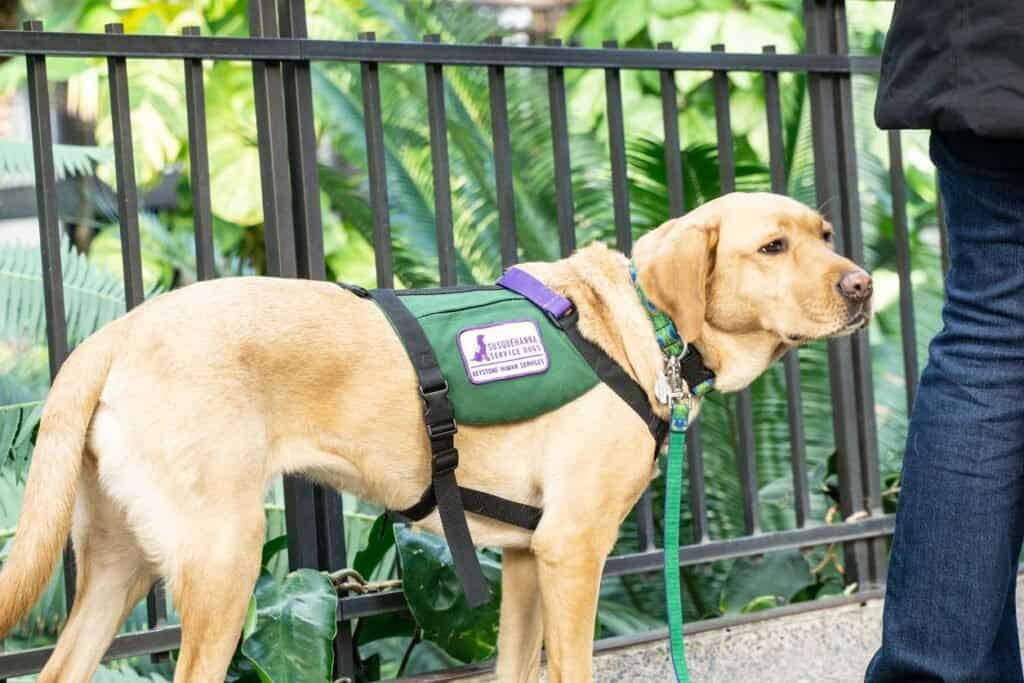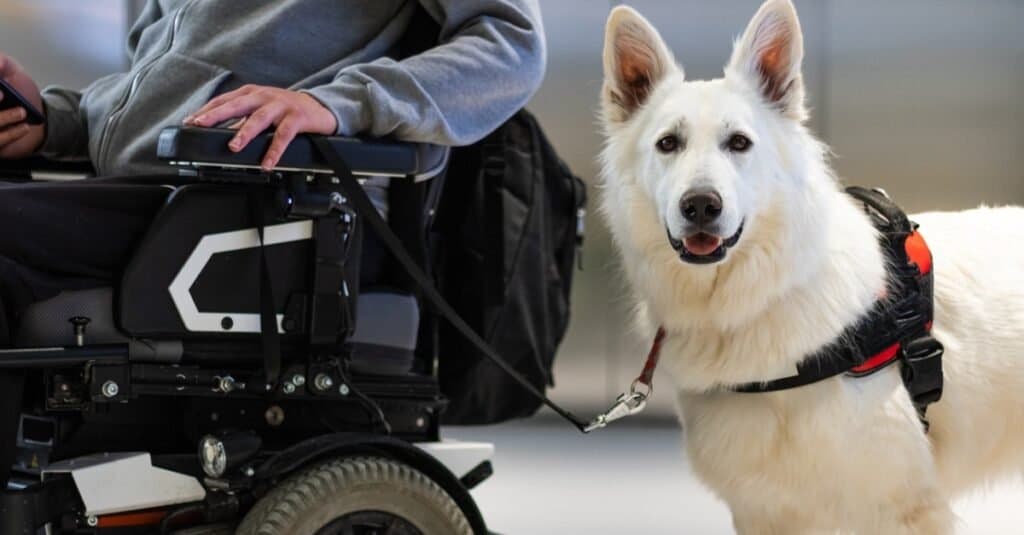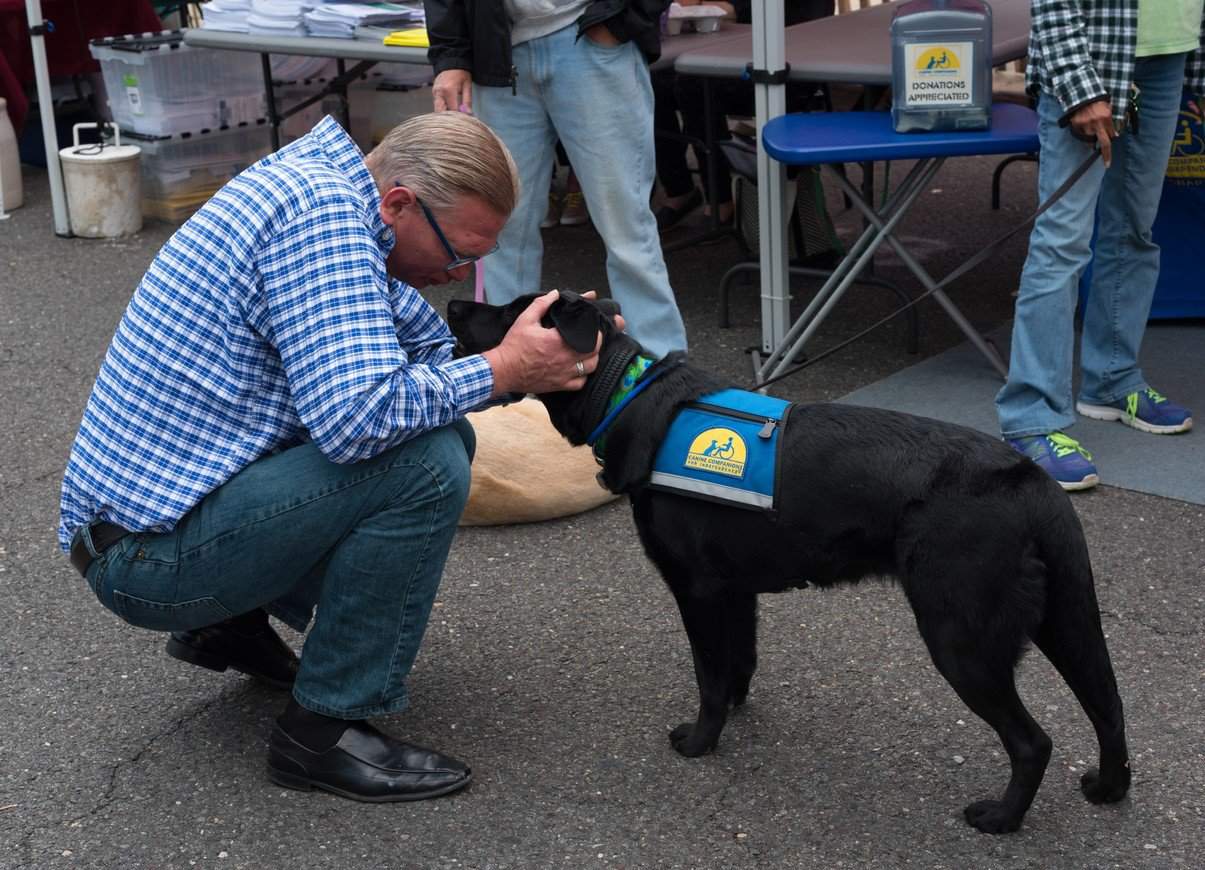Service dogs are dogs that have received special training to execute specific jobs for people who have been diagnosed with either a physical or mental disability. Service dogs are allowed to travel with you everywhere you go, including places where other animals like pets aren’t allowed. The Americans with Disabilities Act (ADA) offers protection for you and your service dog to prevent discrimination. Discover seven reasons you should have a service dog!
7 Reasons You Should Have a Service Dog
1. You Have Autism
If you or your child has autism, a service dog can help in a variety of ways. For instance, one of the symptoms of autism is the difficulty experienced when in social situations. It may be difficult to pick up on social cues or connect with others.
A service dog could help facilitate these moments, offering comfort and an immediate icebreaker. Service dogs are both loyal and loving. The companionship they provide fosters a sense of stability, consequently boosting confidence. This can help those with autism navigate social environments with greater ease. Additionally, service dogs can be trained to interrupt harmful behavior.

Service dogs can help people with autism navigate the world with greater confidence.
©iStock.com/arlutz73
2. You Have Diabetes
If you have diabetes, you know how important it is to stay on top of your blood sugar levels. A service dog can be trained to alert you when your blood sugar either spikes or plummets. This allows people with diabetes to continue living life independently, relying on their service dog to alert them when they need to either increase their glucose levels or inject insulin.
Service dogs that care for people with diabetes can also be trained to alert others if you need medical assistance. This can be as simple as running to another room to alert someone in the home or something as complex as calling 911 to get first responders to your house.
3. Your Vision is Impaired
If you’re visually impaired, a service dog can help you navigate when you are out and about. Typically, these dogs are equipped with a handle that you can hold onto as you walk. Since you are relying on your service dog (also called a guide dog) to help you navigate, the dog practices something called “selective disobedience.” For example, if you direct the service dog to cross the street and it’s unsafe to do so, the dog will disobey.
4. You Are Hard of Hearing or Deaf
If you are hard of hearing or deaf, a service dog can assist you by serving as your ears. They alert you when they hear something. It could be someone knocking on your front door or something more pressing like the sound of a smoke alarm. With a service dog, you are more connected to your environment, which increases your awareness and offers you the ability to live independently.
5. You Require Mobility Assistance
When your mobility is restricted, performing everyday tasks can become too much. A service dog can help you perform these tasks ensuring your independence. A service dog can help you retrieve something (like medication, for instance) from another room or from a countertop. These dogs can also help you press the automatic door buttons when you enter a public building.
A service dog can even help you turn lights on and off. If you have issues with balance and coordination, a large service dog can help support you and prevent you from falling. Even if you are in a wheelchair, a service dog can help you in a variety of ways, even helping you transfer into a chair, your bath, or your bed.

Service dogs can be trained to provide assistance to people with mobility issues.
©24K-Production/Shutterstock.com
6. You Have a Diagnosed Mental Health Condition
You could benefit from having a service dog if you have a psychiatric condition as well. For example, post-traumatic stress disorder (PTSD), depression, and anxiety are conditions that service dogs can be trained to respond to. With PTSD, a service dog could be trained to comfort you when it senses a flashback or panic attack. The companionship of a service dog can also assist with emotional well-being and better sleep. Having a service dog could also assist with getting out of the house regularly and performing day-to-day tasks.
7. You Have a Seizure Disorder
Yet another one of the reasons you should have a service dog is if you have a seizure disorder. A service dog can alert you when a seizure is coming on. There is some debate over whether training for this task is effective, or whether the dog develops a bond and ‘sixth sense’ with its human. These dogs can assist you by getting your medication, keeping you from falling, and using pressure to help end your seizure. It can help move you if you’re in an unsafe place and can call for help as well.
Ready to discover the top 10 cutest dog breeds in the entire world?
How about the fastest dogs, the largest dogs and those that are -- quite frankly -- just the kindest dogs on the planet? Each day, AZ Animals sends out lists just like this to our thousands of email subscribers. And the best part? It's FREE. Join today by entering your email below.
Thank you for reading! Have some feedback for us? Contact the AZ Animals editorial team.








